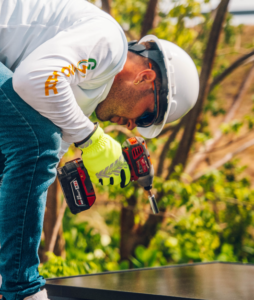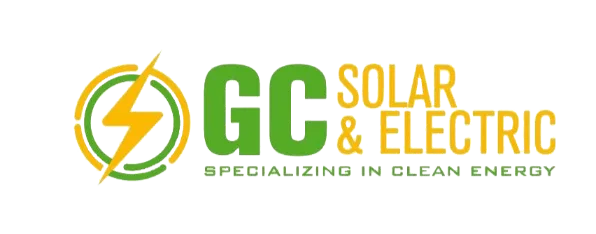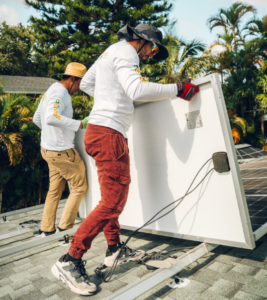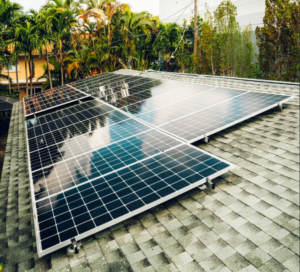
For your solar energy system to operate as efficiently and long as possible, choosing the correct solar panel is essential. Our specialty at GC Solar & Electric is offering premium solar equipment and installation services. This post will walk you through the key elements to take into account when selecting a solar panel, such as pricing, warranty, efficiency, and other crucial details.

Solar panel efficiency refers to how well a panel converts sunlight into usable electricity. Higher efficiency panels can generate more electricity from the same amount of sunlight, making them ideal for installations with limited roof space or where maximizing output is crucial. Efficiency is influenced by factors such as panel material, design, and manufacturing technology.
The cost of solar panels includes both upfront expenses and long-term savings. While higher efficiency panels may have a higher initial cost, they often yield greater returns over their lifetime through increased energy production. Consider your budget alongside expected energy savings to determine the best balance between upfront investment and long-term financial benefits.
Besides efficiency and cost, several other factors impact solar panel performance. These include temperature coefficient (how panels perform in hot conditions), degradation rate (how much their efficiency decreases over time), and tolerance to shading. Panels with lower degradation rates and better tolerance to shading can maintain higher performance levels over many years.
There are three main types of solar panels: monocrystalline, polycrystalline, and thin-film. Monocrystalline panels are known for their high efficiency and sleek appearance, making them ideal for residential rooftops. Polycrystalline panels offer a cost-effective alternative with slightly lower efficiency but good performance. Thin-film panels are lightweight and flexible, suitable for applications where traditional panels may not be feasible.
A solar panel’s warranty is an important indicator of its durability and reliability. Standard warranties typically cover 25 years, guaranteeing performance and protecting against defects. Understanding warranty terms, including what is covered and for how long, ensures peace of mind and long-term investment protection.
Proper installation is critical to ensure optimal performance and longevity of solar panels. Professional installation by certified technicians like those at GC Solar & Electric ensures compliance with local regulations and maximizes efficiency. Regular maintenance, such as cleaning panels and inspecting for damage, helps maintain peak performance and extends their lifespan.
Many governments offer incentives and rebates to encourage the adoption of solar energy. These incentives can significantly offset the upfront cost of solar panel installation, making it more affordable for homeowners and businesses to transition to renewable energy.
Choosing solar panels also contributes to reducing your carbon footprint and environmental impact. Solar energy is clean and renewable, unlike fossil fuels that contribute to air pollution and climate change. By investing in solar, you’re helping to create a sustainable future for generations to come.
Solar panel efficiencies vary, with monocrystalline panels typically ranging from 15% to 22%, and polycrystalline panels from 13% to 18%.
Higher efficiency panels generate more electricity per square meter, maximizing energy production and potentially reducing overall system costs.
Look for warranties that cover both performance (power output) and materials (workmanship), with guarantees extending for at least 25 years.
Yes, solar panels can be installed on various roof types, including asphalt shingle, metal, tile, and flat roofs, with installation methods tailored to each.
Calculate ROI by considering installation costs, energy savings over time, potential incentives or rebates, and the expected lifespan of the solar panels.
For more information on costs or additional inquiries, please visit our website or contact us directly. At GC Solar & Electric, we are dedicated to helping you choose the best solar equipment tailored to your specific energy needs and budget. Read more.




